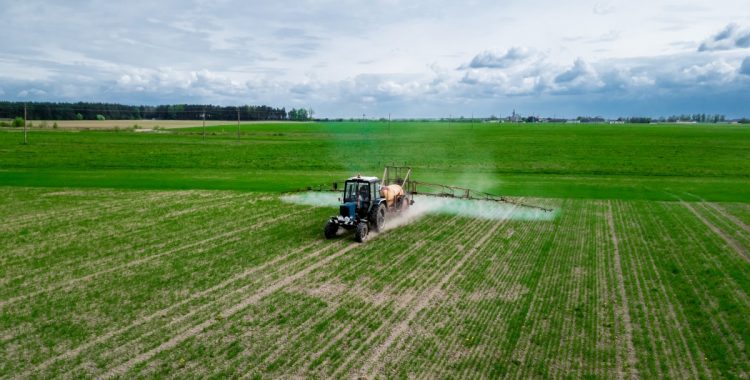
Sometimes we still hold onto the idyllic notion of farms as havens of bucolic tranquility and a slower pace of life. However, today we should really be picturing in our mind’s eye, large industry, and bleak destructive agricultural pollution.
Agriculture is indeed a vital industry that feeds our nation’s growing population, though the modernization and intensification of agricultural practices have come at a significant cost to our environment and health.
Industrial agricultural pollution has destructive consequences on our ecosystems, bodies of water, and ultimately, on our well-being.
Over the last few decades, the transformation of livestock production and farming techniques has resulted in concentrated animal feeding operations (CAFOs) and intensive farming systems. CAFOs generate massive amounts of animal waste that contaminate our water, leading to the proliferation of harmful pollutants.
And one of the major concerns is the release of excessive nutrients, such as nitrogen and phosphorus, into rivers and lakes. Nutrients that fuel the growth of harmful algal blooms, deplete oxygen levels, and cause large scale death of aquatic life.
Moreover, unsustainable agricultural activities contribute to soil erosion, as unsustainable plowing and over grazing leave the land vulnerable to degradation.
Sediment runoff from farms pollutes water bodies, impairing their quality and disrupting ecosystems.
The impact of agricultural pollution extends far beyond environmental destruction. Improper management of animal feeding operations and the indiscriminate use of pesticides, fertilizers, and antibiotics pose risks to human health.
Water Contamination
Pathogens present in livestock waste, such as E. coli and cryptosporidium, can contaminate water sources, leading to gastrointestinal illnesses, skin irritation, and respiratory problems, especially when we come into contact with floodwater.
For instance, studies have shown that during floods, animal waste and wastewater from CAFOs can be carried into surface water, contaminating rivers and lakes. If consumed, or even touched, the contaminated water can lead to serious threats to your well-being. You can only imagine the distress from such illnesses, disrupting your daily life and causing great discomfort to individuals and their families.
Antibiotic Resistance
The overuse of antibiotics, which are put in the feed for livestock, contribute to the emergence of antibiotic-resistant bacteria, posing a significant threat to public health.
The transfer of antibiotic-resistant pathogens from livestock to humans can occur through contaminated food and water sources, leading to infections that are difficult to treat.
It’s particularly concerning as zoonotic pathogens, those that can infect both animals and humans, account for a significant proportion of diseases. A report, released by Animal Frontiers, Emphasized the danger of such outbreaks. In 2011 there was a dangerous outbreak of E coli in Europe, the report highlighted the potential dangers with contaminated food, in this case, sprouts were believed to have been irrigated with water contaminated by livestock manure.
Infant Formula Contamination
Agriculture can also contaminate their own products; with the pesticides and chemicals they use throughout their activities. In 2009 The Food and Drug Association discovered traces of melamine and its by-product cyanuric acid in four out of 89 containers of U.S. made infant formula.
It’s scary to see, but the amounts are not yet deemed unsafe by the FDA.
However, in China, melamine at much higher levels were found in infant formula, causing 300,000 babies to become ill, and six children to die.
Nitrates and Chemical Contamination
The improper use of pesticides, fertilizers, and antibiotics in agricultural practices further exacerbates the issue. Substances like nitrates, phosphorus, and heavy metals, such as zinc and copper, can leach into both surface water and groundwater sources.
High levels of nitrates in drinking water can lead to methemoglobinemia, also known as blue baby syndrome, which can be fatal for infants.
As the world’s population continues to grow, the demand for food products will increase. But, it’s necessary to acknowledge that we can no longer sustain the current trajectory of agricultural pollution.
Implementing the best management practices for manure holding, storage, and application can significantly reduce the risk of microbial contamination in water sources. Proper waste management systems can prevent the release of pathogens and pollutants into the environment.
Furthermore, transitioning towards organic and regenerative farming methods can contribute greatly to reducing the reliance on synthetic pesticides and fertilizers.
Let’s work toward a future where agricultural practices nurture our land, protect our water sources, and ensure the well-being of both our environment and ourselves.
Let’s sow the seeds of change today.
The St. Louis environmental lawyers at OnderLaw represent thousands of businesses, districts, municipalities, and individuals who have suffered significant financial and health damage due to corporate environmental pollution. Call us today for a free consultation.












